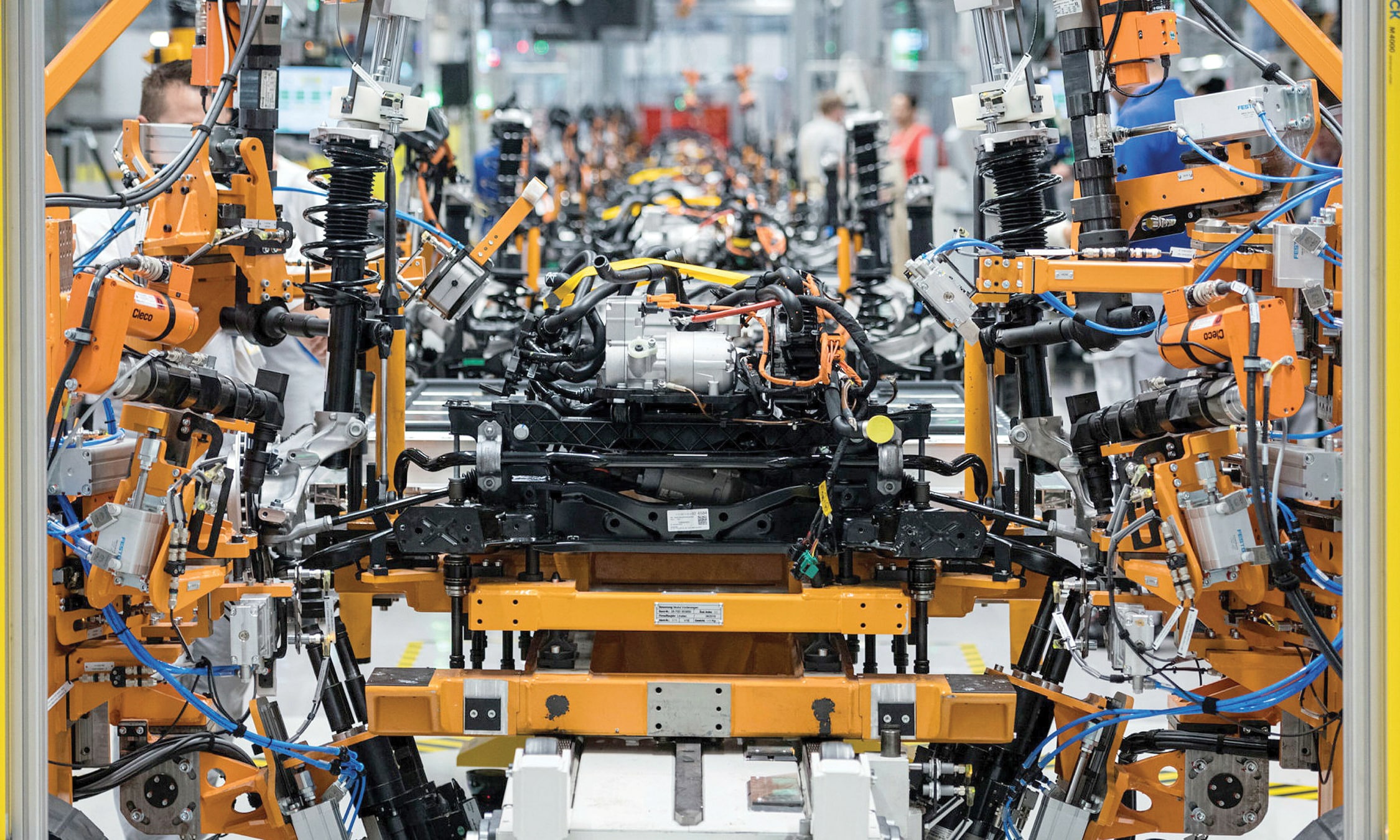FRANKFURT/BERLIN: German industrial orders suffered their biggest fall in March since 2020, official data showed Friday, fuelling fears that Europe’s biggest economy is entering a sharp downturn. New orders, which give a foretaste of industrial output, suffered a surprise drop of 10.7 percent compared with the previous month, according to provisional figures from federal statistics authority Destatis. It was the biggest decline since April 2020, when the coronavirus pandemic had just started its march round the world, prompting lockdowns and border closures. Orders had been rising in recent months, bolstering hopes that Germany had weathered the fallout from the Ukraine war and resulting energy crisis better than feared.
But the latest data rang alarm bells anew about the state of the economy, with LBBW bank economist Jens-Oliver Niklasch calling the plunge a warning for investors. “This figure destroys what had been a good start to the year for German industry, and is a real recession signal,” he said in a research note. The decline could be seen in most areas of the manufacturing sector, Destatis said. Foreign orders were down by 13.3 percent, and domestic orders by 6.8 percent on the previous month, it said. But the economy ministry said that new orders had been “very volatile” in recent times, and that key indicators of sentiment were continuing on an upward trend that started late last year.
Many economic indicators had started rebounding after falling last year in the wake of Russia’s invasion of Ukraine, lifting hopes that Germany could avoid a recession. However the picture has been darkening again recently, with the economy narrowly dodging a recession in the first quarter, against expectations for a rebound, while exports also dropped in March. Meanwhile, Germany’s Economy Minister Robert Habeck on Friday presented plans to cap the price of electricity used by energy-intensive industries to insulate the sector against sharp cost increases, but the proposal immediately sparked criticism. The cap, which would be set at 0.06 euros ($0.07) per gigawatt hour (GWh), would apply until 2030 and cover at least 80 percent of companies’ electricity usage.
Energy costs rose sharply in the wake of the Russian invasion of Ukraine, as Moscow dwindled critical gas supplies to Europe. The electricity price for non-residential customers averaged 0.18 euros without taxes in the second half of 2022, according to the German statistics agency Destatis. The leap in costs for heating and electricity have weighed on industry with Germany experiencing anemic growth in the months since the outbreak of the conflict. Berlin announced a 200-billion-euro package in November to protect consumers and businesses from sky-high energy costs through April 2024. The measures had “stabilised energy-intensive industry but we must not squander this achievement”, Habeck said at a press conference.
The new cap would ensure that “critical branches of industry” remained based in Germany and Europe, Habeck said. The Green party minister described the proposal as a longer-term “bridge” solution until renewables capacity has been increased and prices have come down. A “clearly defined” group of energy-intensive industries would have access to the low-cost electricity, according to the plan, including sectors such as chemicals, steel and glass manufacturing. Beneficiaries would see the difference between the market price for electricity and the cap reimbursed, with the total cost of the project running to between 25 and 30 billion euros, according to the economy ministry’s estimates. The VCI chemicals lobby welcomed the price cap ion a statement as a “clear game changer for our international competitiveness”.
The proposal however faces resistance from within the government coalition, a three-way alliance between the Social Democrats, Greens and the liberal FDP. “I take a very critical view of the industrial electricity price,” Finance Minister Christian Lindner wrote in the Handelsblatt daily earlier this week. The idea was “economically unwise”, said Lindner, whose party the FDP has championed Germany’s balanced-budget orthodoxy. Habeck’s proposals could also raise concerns in Brussels that Germany is unfairly subsidizing its industry. The ministry said it would “enter into a constructive discussion with the European Commission on all competition-related issues”, while calling for a broader “European strategy to strengthen energy intensive industries”. —AFP











